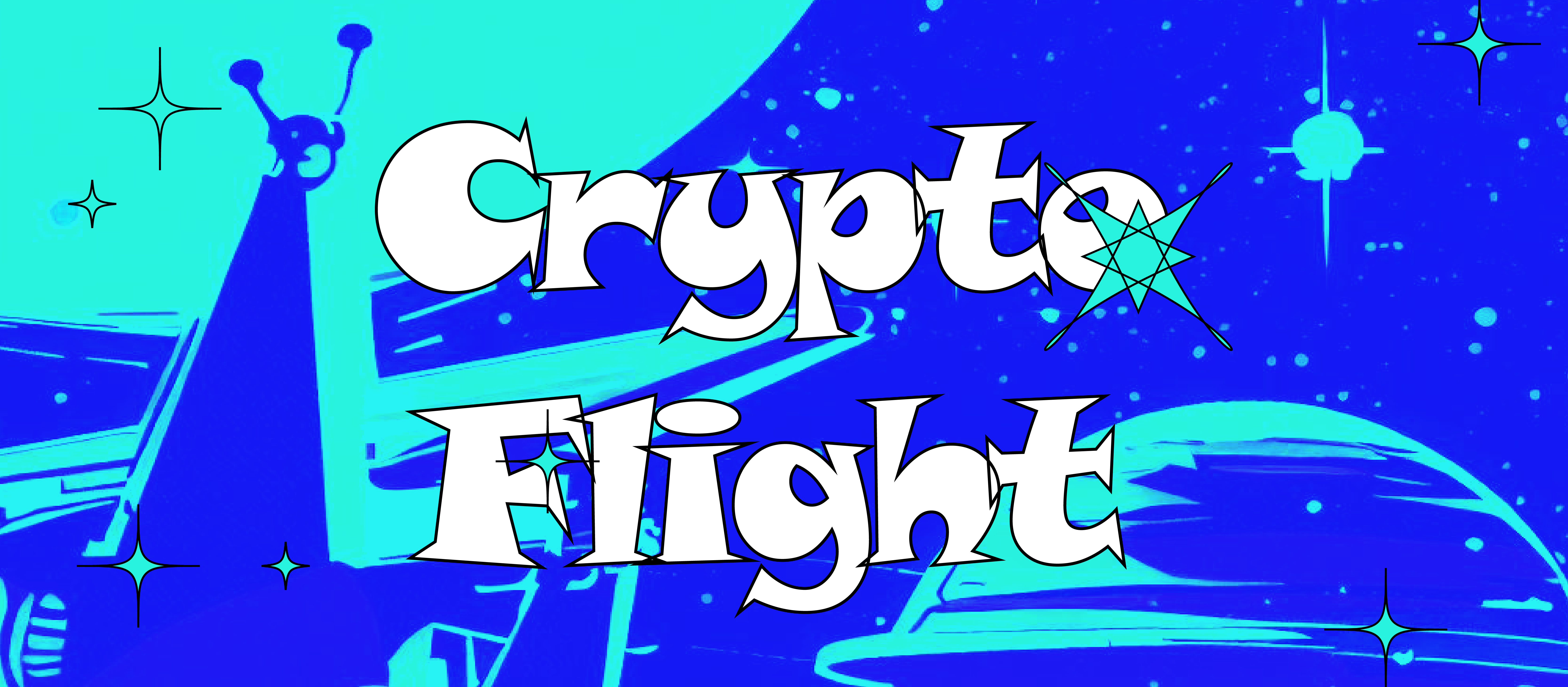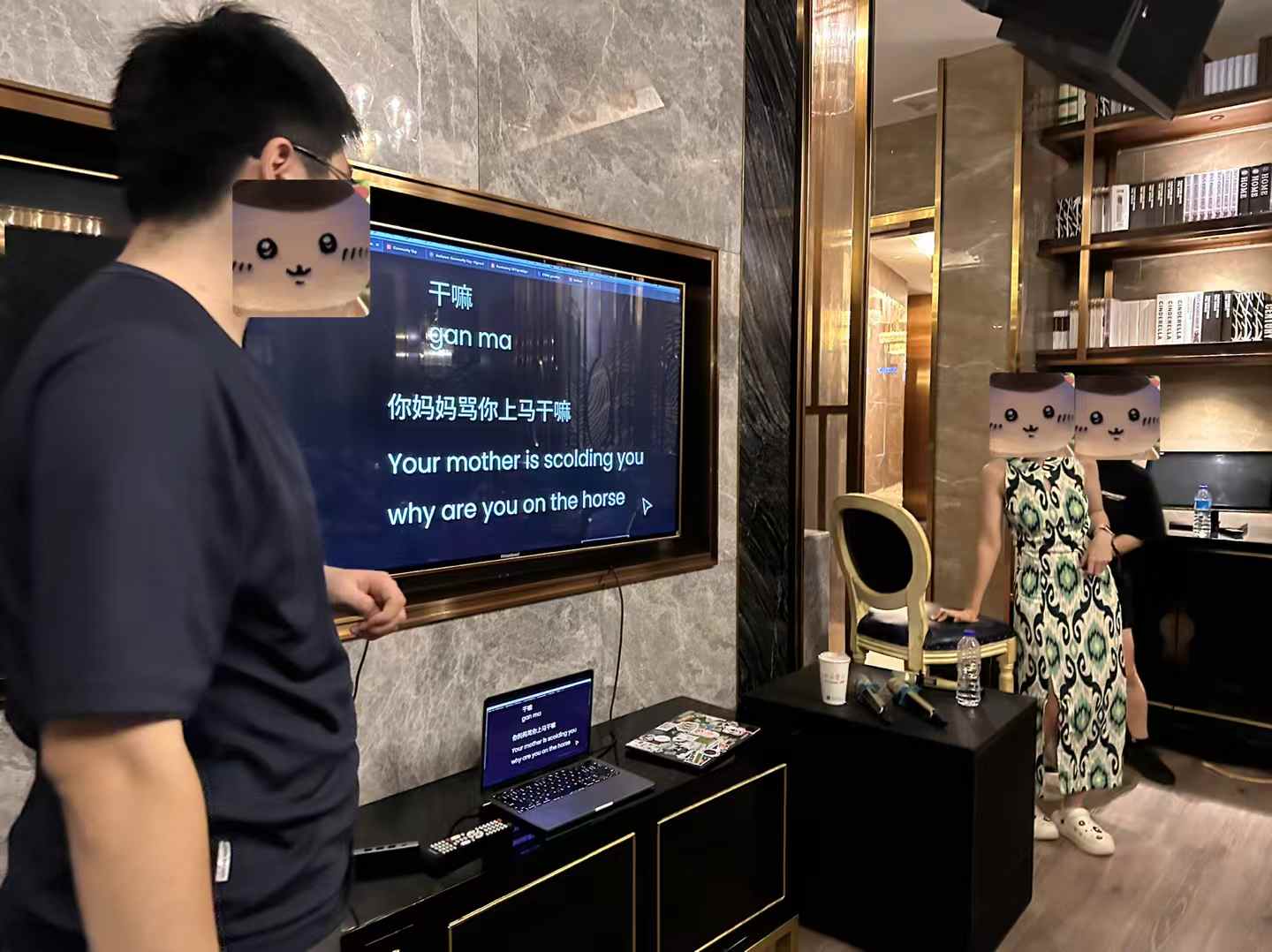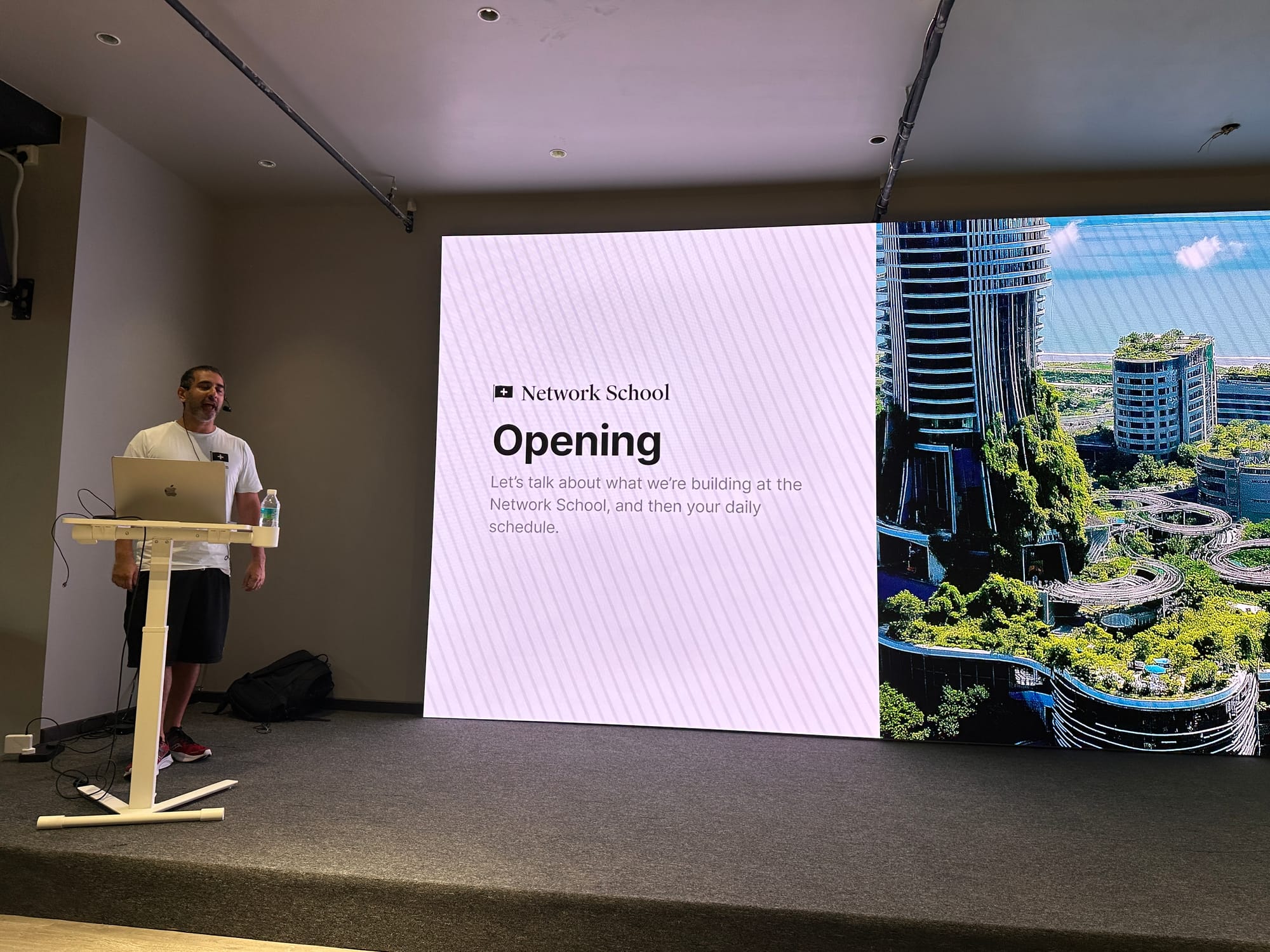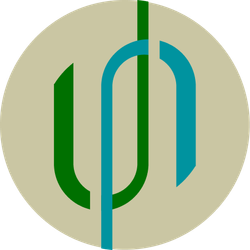加密飞行 Vol.2 | 一个中观网络社会实验:Network School&Balaji
“想象如果你的邻居是你最亲密的朋友。”
"Crypto Flight" is a series of interviews by Uncommons, focusing on pioneers active in the Ethereum and crypto world. It documents the reality of the crypto space and produces diverse perspectives, using conversation and everyday language as methods to distill distant and far-off truths. Inspired by Antoine de Saint-Exupéry's Vol de Nuit (Night Flight), it symbolizes the challenge and exploratory spirit of cypherpunks and crypto citizens as they venture to the ends of the world.

The "Inverted Polaris" at the Borders of the Internet
互联网边境的“倒反天罡”
Cloud Community: A Meso-Level Social Experiment
共识社区:一种中观社会实验
A New Social Model: Society-as-a-Service
全新的社会模式:society-as-a-service
Future Imaginations of the AI Cartel
AI卡特尔的未来想象
Redistributed Digital Sovereignty
再分配的数字主权
Crossroads of the Near Future
近未来的十字路口
Deciphering the Rosetta Stone of Education
破解教育的罗塞塔碑

Foreword/作者序
是的。在距离Network State(网络国家)这本书发布两年之后,Balaji Srinivasan发文说:我们要建一个”Network School(网络学校)”了。
借助Bitcoin的力量,聚集全球150名“dark talent”,Network School由 Balaji的一篇文章,终于成为一场真实发生的社会实验。在靠近新加坡的森林城市Forest City——这个线下的物理据点,我们见证了Balaji所构想的网络国家,通过区块链、加密货币、去中心化自治组织(DAO)以及个人主权的理念,从一个理论构想逐步走进现实的尝试。
Balaji和他的家人、以及Network School共同创办者的家人们也来到了这里,共同生活、交流与创造。在互联网、AI和crypto深刻影响和改变当今世界的当下,Network School提出了一个问题:如果传统教育模式逐渐无法应对未来的挑战,是否存在另一种值得我们探索的学习路径?在Network School里进行结构化和非结构化的部分相结合的可持续性模式探索是卓有成效的。作为第一批“入学”的“dark talents”,我们拥有了learn(学习), burn(锻炼), earn(收益), fun(乐趣)四大核心的日常生活体验。
如今,各种“Pop-up city”(快闪城市)层出不穷,而Network School三个月的共学、共创和共居模式,让它成为了这些快闪城市中的一个持续性实验:不再依赖传统的授课方式,鼓励参与者从第一天起共创项目,探讨实践方案,并通过加密奖励机制(learn-to-earn)的方式实现收入。或许这一切,正是我们在教育和未来社会中所需要的全新尝试。
这篇文稿来源于和Balaji的一对一谈话和录音。

“We got an island.“ ——Balaji
互联网边境的“倒反天罡”
The "Inverted Polaris" at the Borders of the Internet
I want to dive deeper into the shifts we're seeing and the opportunities in front of us. First off, let's talk about the reversal of history—this is something fascinating. By comparing the past and present, we can see how a lot of historical events are, in some ways, flipping around. Take, for example, how the frontier of the West closed, but in 1991, the internet frontier opened up. Suddenly, people could carve out their own little corner of the digital world, which feels kinda like the old frontier days of exploration.
Another example is the Spanish Flu back in the day versus COVID-19 more recently. The pandemics themselves were different, sure, but both were massive, globe-spanning events. And just like how the "Robber Barons" dominated wealth in the late 19th century, now we’ve got tech giants taking up that role on a global scale. It’s like history is rhyming, showing us how certain patterns repeat themselves. We’re also seeing shifts in power dynamics between countries. Russia used to be the dominant partner in its relationship with China, but today, China’s in the driver’s seat. All these historical flips make it clear that the world order is going through some serious, unprecedented changes right now.
我想更深入地谈谈这个时代的变化以及我们所面临的机会。我们可以通过对比过去和现在,看到许多历史事件以某种方式正在倒转。例如,过去西方的边疆关闭,而1991年,互联网边疆打开。人们可以通过互联网建立属于自己的小天地,这与曾经的开拓时代有些相似。
另一个例子是过去的西班牙流感和最近的COVID-19,虽然疫情的性质不同,但都是全球范围内的重要事件。此外,像19世纪末的"强盗贵族"时代,当时的财富大多由工业巨头掌控,而现在的科技巨头则在全球范围内重新崛起。这样的对比展示了历史在某些方面的重演。我们还可以看到国家之间的权力平衡也发生了变化。以前,俄罗斯是中国的主导伙伴,而如今,中国在这对关系中处于主导地位。当前的世界秩序正在经历前所未有的变化。
On the economic front, small countries are becoming way more significant. Sure, they’ve got limited resources, but they’re super nimble when it comes to laws and policies, attracting a ton of capital and talent. Look at El Salvador—they’re shaking up their whole economy by bringing in Bitcoin. This kind of flexibility is something the bigger nations just can’t pull off easily. The key takeaway here is that we’re heading into a decentralized world. This isn’t just about the economy—it’s politics, it’s technology. The internet and crypto are driving this decentralization, giving more power and autonomy to individuals and small entities.
从经济角度来看,小国家的角色也越来越重要。尽管资源有限,但它们凭借灵活的法律和政策,吸引了大量资本和人才。像萨尔瓦多这样的小国家,已经通过引入比特币改变了它们的经济结构,它们具备的灵活性是大型国家无法轻易实现的。我们正在进入一个去中心化的世界,无论是从经济、政治还是技术角度来看,这种趋势都在加速。互联网和加密技术正在推动这种去中心化,给予个体和小型实体更多的自主权和影响力。
That’s where my three principles—possible, desirable, and profitable—come in. First, it’s possible because the tech is there for individuals and small nations to use. Second, it’s desirable because decentralization gives people more freedom and choice. And third, it’s profitable, as this new economy is opening up massive opportunities for innovation and business. So, looking ahead, the big opportunities aren’t just for traditional nation-states or mega-corporations anymore. We’ve got the chance to build our own small communities, network states, or even decentralized digital nations, and that’s going to reshape the global order. That’s the direction we’re heading in right now.
这就是我所说的“可能、可取、可盈利”的三个方面。首先,它是可能的,因为技术已经为个体和小型国家提供了工具;其次,它是可取的,因为这种去中心化模式为人们提供了更多的自由选择;最后,它是可盈利的,因为这种新的经济形态为创新者带来了巨大的商业机会。未来的机会并不仅限于传统的国家和大企业。我们可以通过建立自己的小型社群、网络国家、甚至是去中心化的数字国家,创造出全新的全球秩序。这正是我们现在在探索的方向。

共识社区:一种中观社会实验
Cloud Community: A Meso-Level Social Experiment
Cloud cities and cloud countries are concepts that are starting to emerge. For example, two people might meet for a day to talk, which is a basic form of interaction. Two people might also work together remotely for a month and then meet in person. You could even have two people come together for a year, or ten years, forming deeper and longer-lasting connections. Duration and scale both play important roles here. Let’s scale this up: ten people together for a day is like a small bootcamp. Ten people for a month could be a data science camp. You could even have 100 people together for a day, and eventually, 1,000 or even 10,000 people for larger-scale events or schools. As these groups grow in size and duration, they start to build something material out of their connections.
云城市、云国家的概念正在逐渐浮现。两个相隔很远的人可以在线上互动一天并见面,这样形成的联系往往是较为浅层的。如果他们能在一起工作一个月,或者用远程结合线下的方式合作,这种联系会变得更深。同样的,十个人聚集在一起一天,这类似于一个小型的数据科学训练营;而如果是一年,则像一个更加深入的学习项目。规模扩大后,比如100个人、1000个人聚集,就诞生了一个新的学校或者学习团体。最终,我们甚至可以让10万人通过互联网汇聚在一起,共同创建某种实际的、实体化的项目。因此,终极目标是通过这种方式,建立起一个新的、由共识驱动的社区,每个人都是自愿加入并遵守社区规则。与传统的社会契约不同。
At its core, the concept is about building intentional communities, where people opt into a shared vision or ideology. These communities are built on consent and shared values. Over time, the bonds between people grow stronger through real-world events, not just virtual connections. This is the vision for cloud communities and cloud cities: people from the internet coming together to create something tangible in the real world over 10 years or more. We also see historical precedents for this in the United States. When the country was founded, the 50 states competed for citizens while also cooperating. This created a dynamic system where the population of each state grew together. This same principle applies to cloud communities—competition and cooperation drive growth.
这些新型社区吸引的是那些有着共同理念的人,从线上活动开始并转向线下,以建立更深厚的社会联系。我们不仅要组织这种活动,还需要让大家一起做有趣的事情,比如健身活动等,增强人际互动。它们不仅存在于虚拟空间中,一旦它进入现实,可能比传统的大城市更有吸引力。因为这些人不是由于地理原因被动生活在一起,而是因为志趣相投、理念一致而聚集在一起。这种模式与美国的历史非常相似。最初,美国的各州通过竞争和合作共同发展。每个州都在吸引居民的同时进行合作,整个国家因此共同繁荣。
Shenzhen is another example. Once a small fishing village, Shenzhen transformed into a major global city thanks to China's "Reform and Opening-Up" policies in the late 1970s. This transformation wasn't just about technology, like building skyscrapers. It was also driven by social and legal reforms, highlighting the importance of "invisible social builders" like legal systems and social contracts. Shenzhen's gradual reform approach, as opposed to the Soviet Union’s abrupt changes, allowed it to thrive.
一个典型的例子是深圳。深圳曾经只是一个小渔村,直到20世纪70年代末,“改革开放”使深圳发生了巨大的变化,如今发展成了一个国际大都市。这不仅依赖于技术进步(比如建造摩天大楼的能力),更得益于社会和法律的变革。这展示了“隐形的社会建构者”的重要性——那些看似无形但至关重要的因素,比如法律制度、社会契约等,在社会和经济发展中起到了至关重要的作用。深圳的成功得益于这种逐步的政策改革,而不是苏联式的彻底变革。苏联的改革导致了崩溃,中国则通过一系列“经济特区”的实验,逐渐积累政治资本,最终在全国推行。

全新的社会模式:society-as-a-service
A New Social Model: Society-as-a-Service
In the future, we could see a world made up of countless small entities, all connected through the internet and crypto, forming a decentralized global network. Everything we’re doing now is setting the stage for that future. History is flipping, decentralization is speeding up, and we’ve got the chance to play a big role in this new era. Every choice we make, every project we start, could shape the future of the world. And when we talk about the future of decentralization, I really want to drive this point home—we’re living through a one-of-a-kind moment. Traditional borders, economic structures, and social models are being replaced by digital, decentralized alternatives. This isn’t just about tech innovation, it’s about how humans organize society, distribute resources, and define power structures.
未来的世界可能是由无数的小型实体组成的,它们通过互联网和加密技术相互联系,形成全球化的去中心化网络。我们现在所做的一切,都是在为这种未来做准备。我们有机会在这个新时代中扮演重要的角色。我们所做的每一个选择、每一个项目,都可能影响未来世界的格局。我们现在处于一个前所未有的时刻。传统的国家界限、经济结构和社会模式正逐渐被数字化、去中心化的替代方案取代。这不仅仅是关于技术创新,更是关于人类如何组织社会、分配资源和定义权力结构。
In cloud communities, people come together not just online but in real life. This builds real, lasting connections, much like traditional cities, but without the limitations of geography. Instead of living next to strangers, what if your neighbors were your closest friends, people who share your values? This is the experiment we’re running with cloud cities.
We can take these lessons from history and apply them to modern cloud cities, which start online but eventually become real, physical communities. By scaling in place or across multiple locations, these communities can grow organically, much like early American colonies or Shenzhen. The goal of these cloud cities is not just to build a high-tech, fancy destination. Instead, the aim is to create something better than the big cities we know today, where people often live near strangers. In cloud cities, you’d live near friends and collaborators who share your goals and interests. As technology advances and allows us to connect globally, we are seeing the rise of new societies that blend the digital with the physical. These cloud cities represent the future of community building—where online interactions lead to real-world collaborations that shape the cities and societies of tomorrow.
在共识社区中,人们不仅在网上,而且在现实生活中也聚集了起来。这使得真正的、持久的连接得以建立,既像是传统的城市,又没有地域限制。如果你的邻居是你最亲密的朋友,是和你有共同价值观的人,而不是陌生人。这正是我们正在进行的云城市实验。
我们可以从历史中吸取这些教训,并将其应用于现代共识社区,通过扩大规模或跨越多个地点,这些社区可以有机地发展,就像早期的美国殖民地或深圳一样。它们的目标不仅仅是建立一个高科技的、花哨的目的地。相反,它希望创造比我们今天所知道的大城市更好的东西。在大城市里,人们经常住在陌生人附近。技术进步使我们能够在全球范围内联系,我们正在看到数字与现实融合的新社会的兴起。它们代表着社区建设的未来——在线互动向现实世界的合作,进而塑造未来的城市和社会。

We’re witnessing the birth of a new kind of tech community, designed to be a permanent home for innovation, unlike the limitations seen in places like Silicon Valley or San Francisco. This community is about scaling and building something lasting, where we can truly thrive. It’s different because, here, we’re allowed to build, to experiment, and to create a new world. Our community blends both technology and the humanities. The tech side is filled with developers, engineers, and crypto people, while the humanities side includes creators like artists, writers, and performers. Success here isn't just about coding but also about cultivating culture. For example, we're thinking about how to recruit top talent in a viral loop, where people are eager to join and bring others along.
In San Francisco, putting up a sign could lead to bureaucratic hassles, but here, we have the political will and the space to create. This place is about building a community that's "upstream of technology" — just as Y Combinator is upstream of tech companies, we're upstream of communities. The goal is to create nodes worldwide, where people can choose their own adventure. You can be a supporter, an investor, a student, or even a faculty member as you gain experience.
我们正见证一个全新科技社区的诞生,它将成为创新的家园。我们的目标是在这里打造一个持久的、能够真正繁荣发展的空间,区别于像硅谷或旧金山这种受限的地方。我们不仅有足够的空间去试验、创造,还拥有政治意愿来推动这些变革。不仅作为科技的聚集地,还是一个艺术与科技交织的场所。科技方面有开发者、工程师、加密货币爱好者,人文领域则包括艺术家、作家和表演者。这里的成功不仅仅依赖于编程能力,还包括对文化的培养。例如,我们正在思考如何通过一种“病毒式”的方式吸引顶尖人才,让他们自愿加入并带来更多的人。
在旧金山,哪怕是挂个招牌都可能遭遇繁杂的官僚程序,但在这里,我们有政策支持,也有足够的空间去建设、去打造。就像Y Combinator是科技公司的上游,我们是社区的上游。我们希望在全球各地建立多个节点,让每个人都能自由选择他们的冒险之旅。你可以成为支持者、投资者、学生,随着经验积累,你甚至可以成为“导师”。
For many years, I was involved in genomics. But over time, I realized that the most critical issue wasn’t the technology itself, but the regulatory environment. It's easier to create something new outside traditional frameworks than to reform existing institutions like the FDA. So, the idea is to build sovereign entities where innovation can flourish with fewer constraints. We believe this community can scale up to tens of thousands of people, and beyond that, hundreds of thousands and maybe even millions. The key to growth lies in balancing quantity and quality — starting with a focus on the number of participants, then transitioning to optimizing for talent and contribution. It's a new type of social model, like a "society-as-a-service," where renewal and self-improvement are key metrics of success.
多年来,我一直从事基因组学领域的研究。但随着时间的推移,我意识到最重要的问题并非技术本身,而是监管环境。与其在FDA(美国食品药品监督管理局)等机构中推动改革,不如在现有框架之外创建全新的东西。因此,我们希望的构建主权实体,在这个框架内让创新更加自由地发展,而不是处处受限。我们相信这个社区可以扩展到数万人,甚至是数十万、上百万人。成功的关键在于如何平衡数量与质量——最初我们着重参与人数的增长,随后再聚焦于人才选拔和贡献提升。这是一种类似于“服务型社会”(society-as-a-service)的全新社会模式,自我提升和社区更新是衡量成功的核心标准。

AI卡特尔的未来想象
Future Imaginations of the AI Cartel
When we talk about true superintelligence—intelligence with agency—the picture isn’t entirely clear yet. I can provide a few arguments for why it’s still a long way off, but let’s see if it actually materializes. The basic argument is that, at present, AI performs well in environments where the rules are fixed, like Go or chess. The rules don’t change—Go stays Go, chess stays chess, even the image label for a dog stays a dog, right? But when you move into unstable domains, like politics or markets, where past performance doesn’t predict future outcomes, AI’s role becomes less certain. If AI could function in those domains, it would mean it could predict time series changes. But if it really could do that, others would deploy their own AIs to compete, and suddenly, we’re back to square one. So in these time-varying, agent-based fields, AI’s effectiveness remains unclear.
Now, of course, there are time-varying environments, like autonomous driving, where AI already excels. But when you move into more dynamic and adversarial domains like politics or markets, things become murkier. It’s not like the laws of physics where, if you make a turn, the AI always knows what to do. In markets or politics, the rules can shift; the AI’s predictions can fail because adversaries get smarter and change the game. There are other examples too, like generating synthetic images. Many people believe AI has excelled at this, but I’m not convinced it can handle complex environments with time variations. This suggests that if you excel in politics or markets, you’re essentially piloting the AI—like having 1,000 robot employees, but these robots still lack agency; they don’t know what they want. What does a car want? It doesn’t have any intention. I don’t think it’s impossible, but I do think the current models haven’t reached that level yet.
关于真正的超级智能——具有代理权的智能的部分,目前还不是很清晰,我们也许会看到它是否真的能实现。现阶段AI在处理像围棋和国际象棋这样规则固定的任务时表现良好。如果规则不变,围棋和国际象棋的规则不变,那么从狗的图像标签到狗的图像也不变。但是,一旦进入那些非稳定的领域,比如政治和市场,在这些领域中,过去的表现无法预测未来的结果。假如AI能够在这些领域起作用,它就可以预测时间序列的变化;但如果它真的能做到,其他人也会使用他们自己的AI与之竞争,于是一切又回到了起点。所以,在这些具有时间变化和代理权的领域,AI的作用还是未知的。
当然,在某些时间变化的领域,比如自动驾驶汽车中,AI已经能够做得很好,但当我们进入政治和市场这些更加动态和对抗的领域时,事情就变得不那么明确了。它不像物理定律一样是固定不变的,你做了一个转弯,AI总是知道怎么应对。但是在市场或政治领域,对手会变得更聪明,一旦游戏规则改变了,AI的预测可能会失效。还有其他例子,比如图像生成。许多人认为AI在生成图像上已经表现得非常出色,但我不确定它是否能处理某些复杂的时间变化环境。这意味着,如果你擅长政治和市场,你就能够操控AI,就像你有1000个机器人员工,但这些机器人依然没有代理权,不知道自己想要什么。汽车并没有想法。我不认为这不可能,只是现有的模型还没有达到那个层次。
I believe that in the future, every country or society will have its own decentralized AI network and decentralized currency—bundled services available on demand. You simply pay to access them. Today, AI development is still largely controlled by a small group of technical elites, but there are decentralized alternatives emerging, like ENS (Ethereum Name Service), which show another way forward. Centralized currencies are represented by central bank digital currencies (CBDCs), while decentralized currencies are cryptocurrencies. Similarly, centralized social media is Facebook, while decentralized versions are platforms like Farcaster and Lens.
So, what I think we’ll see is not the emergence of a single monopolistic superintelligence, but a competitive landscape of multiple players. It’s almost like a return to the Victorian era of competition and industrial evolution—we’ll witness its unfolding.
我认为未来的每个国家或社会都会拥有自己的去中心化AI网络、去中心化货币——这些全都是打包好的服务,付费即可获得。目前的AI开发仍由少数技术精英主导,但也有像ENS(以太坊命名服务)这样的去中心化服务,展现了另一种可能性。中央集权的货币是央行数字货币(CBDC),而去中心化的货币是加密货币。同样,中心化的社交媒体是Facebook,而去中心化的社交媒体是像Farcaster、Lens等平台。
因此,我认为我们将会看到的是,在这个去中心化的世界中,不会出现一个垄断性的超级智能,而是多个参与者之间的竞争。这有点像是维多利亚时期,我们会看到它如何演变。

再分配的数字主权
Redistributed Digital Sovereignty
Now, let’s talk about the evolution of the internet. The internet started as an information revolution, allowing us to access and share knowledge from anywhere, anytime. But now, blockchain technology and cryptocurrencies are bringing in the second wave of revolution—a value revolution. And I don’t just mean the monetary value of crypto. I’m talking about the potential to redistribute resources and power through decentralization.The traditional financial system is highly centralized, but blockchain allows for global transactions and contract execution with low costs and high efficiency. Whether it’s Bitcoin, Ethereum, or DeFi protocols, they’re reshaping the financial system, giving individuals and smaller organizations access to the same tools as big banks or nation-states.
DeFi isn’t just a tech advancement; it’s a challenge to the traditional financial power structures. Through smart contracts, trustless protocols, and global networks, people can manage their wealth without needing banks, governments, or middlemen. This drastically reduces our reliance on traditional authorities and redefines how we think about trust, finance, and power distribution.
回到互联网的发展历程。互联网最初是信息的革命,让我们能够随时随地访问和共享信息。而如今,区块链技术和加密货币正带来第二波革命——价值的革命。这不仅仅是指加密货币本身的价值转移功能,更是指通过去中心化的方式重新分配资源和权力的可能性。传统金融系统高度集中,而区块链技术让我们能够在全球范围内以低成本、高效率的方式进行交易和合约执行。比特币、以太坊和各种DeFi协议正在重塑金融体系,让个体和小型组织能够拥有与大银行和国家类似的金融工具。
去中心化金融(DeFi)不仅仅是技术的进步,更对传统金融权力结构的挑战。通过智能合约、去信任的协议和全球性的网络,个人可以在不依赖银行、政府或中介的情况下,自主管理财富。这让人们对传统权威的依赖大大减少,重新定义了信任、金融和权力的分配。
In this decentralized future, every individual will have much more autonomy, becoming a "sovereign individual." You won’t rely solely on a nation-state to provide identity, education, healthcare, or other services. Instead, you’ll be free to choose and participate in various decentralized services and communities worldwide.
At the same time, you could hold multiple identities. You might be a member of a DAO in one community, a contributor to a decentralized platform in another. Your identity will no longer be singular—it’ll shift and adapt based on your needs and interests. This concept of multiple identities will break down traditional social classes and identity structures, giving individuals more freedom and choice than ever before.
在这个去中心化的未来,每个人将拥有更多的自主权,成为"主权个人"。你将不再仅仅依赖某个国家的政府提供身份、教育、医疗和其他服务,而是可以在全球范围内自由选择和参与各种去中心化的服务和社区。
我们可能会拥有多个身份——在某些社群中你是某个DAO的成员,在另一些社群中你是某个去中心化平台的贡献者。你的身份不再是单一的,而是可以根据不同的需求和兴趣进行切换。这种多重身份的概念将颠覆传统的社会阶级和身份认同,给个人带来更多的自由和选择。

近未来的十字路口
Crossroads of the Near Future
The idea of a "digital nation" is no longer just science fiction. Thanks to the internet, small communities can transcend geographic boundaries and become new social entities. Look at DAOs—decentralized autonomous organizations. These are digital communities that don't rely on physical location or traditional laws. DAOs can be global, with members scattered across the world, and they operate based on smart contracts and blockchain technology, creating an entirely new model for governance.
This kind of setup makes us rethink what it means to be a country or a citizen. In the past, a nation’s sovereignty was tied to land and resources, but now, sovereignty could be tied to networks and data. In the future, we might not just belong to a physical nation-state but instead hold citizenship in multiple digital nations. These nations could be linked by shared interests, economic incentives, or a common vision, not by where you were born or your race.
"数字国家"这个概念已经不再是科幻。通过互联网,许多小型社区已经能够跨越地理界限,成为新的社会实体。我们看到的分布式自治组织(DAO)就是不依赖地理位置或传统法律的数字社区。这些DAO可以是全球性的,由分布在世界各地的成员共同运营,它们通过智能合约和区块链技术来实现规则的执行,建立全新的治理模式。
这使得我们开始重新思考国家和公民的概念。过去,国家的主权体现在土地和资源上,但现在,主权可以体现在网络和数据上。未来,我们可能不再仅仅依附于物理国家,而是同时成为多个数字国家的公民。这些国家可能由兴趣、经济利益、或共同的愿景联系在一起,而不是由出生地或种族决定。
In this new world, governance models are changing big time. DAOs and other decentralized organizations offer a new way to govern—one that’s more transparent and way more efficient. Traditional governance tends to be slow and bloated, with power concentrated in the hands of a few. DAOs, on the other hand, automate decision-making through smart contracts, where everyone has an equal say.
This decentralized governance model doesn’t stop at finance or tech. It can spread to all aspects of society. Imagine a future where cities or even entire countries are governed in a decentralized way. Everyone could participate in decision-making through smart contracts without needing cumbersome government institutions. This would dramatically improve governance efficiency while minimizing corruption and power abuse.
在这个新世界里,治理模式也在发生巨大的变化。DAO和其他去中心化组织为我们提供了一种新型的治理方式——它不仅更加透明,还能够大大提高效率。传统的治理模式往往缓慢而臃肿,权力集中在少数人手中,而DAO通过智能合约实现自动化决策,所有成员都有平等的发言权。在金融或技术领域以外,它能够扩展到社会的方方面面。想象一下,未来的城市或国家可能会通过去中心化的方式进行治理,每个人都可以通过智能合约参与决策,无需依赖繁琐的政府机构。这将大大提高治理效率,减少腐败和权力滥用的可能性。

破解教育的罗塞塔碑
Deciphering the Rosetta Stone of Education
The internet has totally changed the world, but it’s still undervalued. Like, how much do you remember from traditional university? Not much... So you spent a lot of time on it, got a degree, but the world moves so fast, and education hasn’t kept up, right? We need to match the speed of the network, that’s why Network School exists.You can see tutorials updated in real time, with people hosting events super quickly. Real-time education and learning opportunities are key. We’re also issuing blockchain credentials, and they stay on-chain forever.
互联网完全改变了世界,但仍然没有被充分重视。对传统大学教育所教授的东西,你还记得多少?你花了很多时间去获取文凭,事实则是,时代进步太快了,教育却并没有跟上。我们需要跟上网络的速度,因此我们需要Network school。这里的学习是实时更新的,实时教育、捕捉学习机会非常重要。我们还会发布区块链上的凭证,而它会永远留在链上。
Basically, we’re building what Vitalik called ‘modular’ education.I got my PhD at Stanford, taught there, then left, and everyone was shocked. They were like, ‘OMG, you’re leaving academia?!’ But Bryan Johnson is doing something similar now—he’s publishing all his data online, skipping the traditional academic process.Peer review just means two people giving thumbs up to your paper, like a private social network. It doesn’t mean independent validation; it just means a few professors liked your work.The reputation of traditional academia is plummeting in the U.S., and I don’t think it’s going to last much longer—it needs disruption.
我们现在正在做的,正是Vitalik提到过的“碎片化”教育。我在斯坦福拿到了博士学位,并且在那里教书,后来我离开了。大家都很震惊,说“天哪,你怎么能就这么离开呢?”而 Bryan Johnson 现在所做的,就是把所有的数据都发布在网上,却不是通过传统的学术流程来发布。同行评审其实只不过是两个人对你的论文投了赞成票,就像一个私人社交网络。这不意味着它得到了独立的验证,而只是意味着有一些教授喜欢你的东西,仅此而已。传统学术界的声誉在美国急剧下降,我不认为它还能维持多久,它需要被颠覆。
If you want traditional education, China probably does it best globally. Despite its issues, China’s educational system has clearly done something right, producing people with hard skills who can solve real problems.Like building the Hong Kong-Zhuhai-Macau bridge? You can’t do that without a solid education system. I think there are aspects of China’s model we can learn from, but Western education is basically outdated.
对于传统教育,中国在这方面可能是全球做得最好的。虽然它有很多问题,但是中国从1970年发展到现在,在教育体系上,他们显然做对了些什么,因为他们培养出了有实际技能的人,可以解决实际问题,比如建造像港珠澳大桥这样的东西。如果没有运转良好的教育体系,这些东西是不可能实现的。我觉得一些中国教育模式的方面值得我们借鉴,而西方的教育模式基本上已经过时了。

Of course, this decentralized world isn’t without its challenges. First, there’s the complexity of the technology itself—decentralized systems require highly sophisticated infrastructure, and not everyone will understand or be able to use these technologies right away. Then there’s the question of how decentralized models will coexist with existing legal and governance systems, which is definitely something that needs to be figured out. But, like with every tech revolution, challenges always come hand-in-hand with opportunities. The people who adapt quickly and learn how to leverage these new technologies will be the ones who thrive in the future. Every project we’re working on right now is really laying the groundwork for that future.
We’re standing at a major historical crossroads. Decentralization, digital nations, sovereign individuals, and trustless financial systems are all about to redefine the world for the next few decades. We’re not just witnessing this shift; we have the chance to actively participate in it and shape the future. In the end, every decision matters. The real question now is: Are you ready to embrace this new decentralized era?
当然,这个去中心化的世界并非没有挑战。首先是技术上的复杂性,去中心化系统需要高度复杂的技术基础设施,而这些技术并非人人都能理解和使用。其次,去中心化的模式如何与现有的法律和治理体系共存,也是一个需要解决的问题。正如每次技术革命一样,机遇总是伴随着挑战。那些能够迅速适应并利用新技术的人,将在未来占据有利位置。我们正处在历史的十字路口。去中心化、数字国家、主权个人和去信任的金融系统将重新定义未来几十年的世界格局。选择加入这场变革的人,将有机会在未来的去中心化世界中扮演重要的角色,塑造社会的未来。
接下来,真正的问题是:你准备好迎接这个去中心化的新时代了吗?
在信息乱流无孔不入的今天,我们越发需要主体间的支持。合作的生产,互助的教育,以及萌生于公共土壤中的共同愿景,让社区组合模式的更新和自涌现成为应运而生之事。Network school也是其中之一。自一篇文章通往一个可量度的社会,这种中观层面的社会实验,为近未来数字国家的验证,和去中心化社会治理的践行提供了重要的范例。
有趣的是,COVID-19结束后的2024,人们不约而同地转向真实世界中可触达的交互,希望从面对面的人际关系与集体经验中,建造一个生产想象和创造力的理想花园。兴许这正是横亘在人类身体与精神之间深刻隔阂的解药:当我们身处泥沼,依然能够想象一个异在的美好世界,这将永远是先锋的,并始终具备非同凡响的力量。
Uncommons
Reporter/Translator: Twone
Edit:0614
👇文中图片来源
Twone
Who we are 👇
Uncommons
区块链世界内一隅公共空间,一群公共物品建设者,在此碰撞加密人文思想。其前身为 GreenPill 中文社区。
Twitter: x.com/Un__commons
Newsletter: blog.uncommons.cc/


Discussion